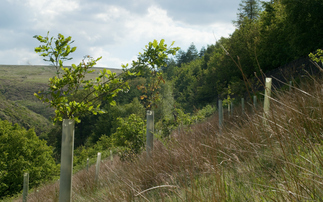From tumbling renewables records to political dog-fights, James Murray looks at the trends that will define the green economy over the next 12 months
8. Green building, coming to a street near you
Energy efficiency policies have endured the proverbial roller-coaster ride over the course of this parliament, but there are encouraging signs that 2015 could see progress made on a number of fronts.
First up the introduction of the Energy Saving Opportunity Scheme (ESOS) will focus minds at 10,000 firms across the country, highlighting the areas where energy savings are possible in much the same way that the Carbon Reduction Commitment (CRC) scheme prompted larger businesses to take efficiency more seriously. There will be grumbles about the administrative burden (when are there not), but the requirement to carry out an energy audit will inevitably help many mid-sized firms unlock cost-effective energy and carbon savings.
On the domestic front, there are some encouraging signs the Green Deal is finally starting to gather pace, even if this progress is more than offset by growing concerns about the health of the accompanying ECO market.
Most important of all is the manner in which green building innovations are becoming normalised across the industry. New and retrofitted offices are increasingly including building management systems, LED lighting and even onsite generation as standard. Modern homes are following in their wake as early adopters start to embrace clean technologies. Expect to see more genuinely low carbon buildings.
9. Election 2015 puts green policies on a knife edge
The policy uncertainty faced by many green businesses becomes clear when you consider the number of credible parliamentary permutations presented by May's election.
Just consider a handful of the scenarios the polls suggest are reasonably likely.
A narrow Conservative victory would mean an end to new onshore wind farm development in the UK, while further restrictions on solar farm development would be likely - green business investors would inevitably suffer. Prime Minister David Cameron would face intense pressure from some backbenchers and ministers to deprioritise decarbonisation or even scrap the Climate Change Act. Meanwhile, the few remaining modernisers would urge him to honour the UK's climate targets and deliver a credible strategy for cutting emissions through the 2020s. With a narrow majority, keeping both camps happy would be all but impossible. Throw a potential coalition with UKIP or Northern Ireland's unionists into the mix and pressure to scrap environmental policies could become even more pronounced.
A continuation of the Conservative-Lib Dem coalition would infuriate the base of both parties, not to mention a large chunk of the electorate, but it would presumably enable the continuation of the government's current mixed bag of green policies - assuming a bout of regicide does not quickly disrupt the balance of any new coalition.
In contrast, a narrow Labour victory (or a coalition with the Lib Dems or Greens) would result in a new wave of green policies, including a flagship package of measures to tackle fuel poverty and a decarbonisation target for 2030. However, environmental campaigners have noted there is little evidence Labour would differ much from the Tories when it comes to road and airport building or tax cuts for North Sea oil and gas.
Barring pre-election flooding, climate change is unlikely to play a central role in the election, but the considerable difference between the two main parties on clean energy coupled with the remarkably tight polls mean green businesses and investors will face considerable political risk and uncertainty during the first half of 2015 - uncertainty that could extend throughout the entire year if, as looks entirely possible, the election does not deliver a clear result.
10. Late nights in Paris
The prospects of an ambitious climate treaty being agreed in Paris this December remain as tricky to read as ever. The foundations for a deal based on individual nations' climate commitments are in place, but unresolved (and potentially irresolvable) differences over historic responsibilities, climate funding, and independent emissions auditing mean the high stakes talks could be blown apart at any time.
Optimistic predictions that a deal will be reached that commits all the major economies to increased low carbon investment and gradual emissions cuts appear well-grounded. Such a deal would represent a boost to green businesses around the world and would undoubtedly unlock increased low carbon infrastructure spending.
However, the dysfunctional nature of the perennially over-running talks, the extent to which low oil prices are fomenting uncertainty in producer nations, and the unanswerable warnings that the draft agreement already looks staggeringly weak all mean that no one should be counting their chickens ahead of those long nights in Paris.









